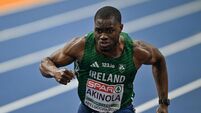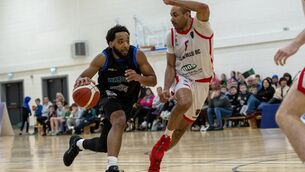Maeve Kyle: Ireland's first female Olympic track and field athlete

dull day. The wipers, the relentless rain, the steam on the windows. You weave through the roads until you come to a tiny turn, a cul-de-sac. You drive deeper into the trees and, then, a kind-of crossroads. A small sign entices you to keep left at the fork.
‘Tír na nÓg’. Of course.











